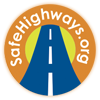How often are assisted motorists aware of your patrol prior to receiving your assistance? What value do you see in making more people aware of Safety Service Patrols and their services?
“Seems like a majority of people say they have seen our vehicles, but weren’t sure what we did. Any information disseminated should include a good description of what we can and can’t do. Such as if you have a flat tire, you need to have a spare in order to change it. Some people are under the impression we carry tires and parts and can get quite upset when they get the bad news. Same with people who have special rims and locking lugs, but don’t have the tools to get the tire off. Those people are few and far between and the people we are able to help are always grateful.”
– Mark Taylor, Safety/Training Coordinator, Dallas County Sheriff’s Department, Courtesy Patrol
“Some people see us on the side of the road and know what we do. They want to be able to call for us, like their private roadside assistance, but can’t do that, as we work for the department of public safety. We ask them to call the department, either at the non-emergency number, or call 911, as a stopped vehicle on the highway is considered an emergency.”
– Joseph Soubie, Freeway Service Patrol, Arizona Department of Public Safety
“Based on responses to the comment cards, 25% of assisted motorists were aware of the Nevada DOT Freeway Service Patrol service prior to receiving assistance. We do not advertise the program because we do not want to give the public the impressions that FSP is an assistance type service like AAA or tow. The purpose of these programs is to improve highway safety on the more heavily traveled sections of our urban freeways by reducing the time required to remove incidents (objects) that can disrupt traffic flows and cause traffic congestion during peak travel periods. For this reason, FSP is not available on-call, but will stop on their regular route to provide needed assistance.”
– Juan C. Hernandez, Senior ITS Project Manager, Nevada DOT Traffic Operations
